Belarus against "iron curtains" Minsk conference calls for dialogue amid global tensions
The 3rd Minsk International Conference on Eurasian Security was held on 28–29 October. In today’s tense global environment, its participants sought to answer the key question — what can be done to halt the growing escalation of international tensions?
“This is the 21st century: closed skies, barbed wire, and total rejection of dissent...”
The conference, held in the capital of Belarus, brought together representatives from 48 countries and several international organisations, including BRICS, the EAEU, CSTO, CICA, CIS, and SCO. Compared to the previous conference, the number of participating countries increased by ten.
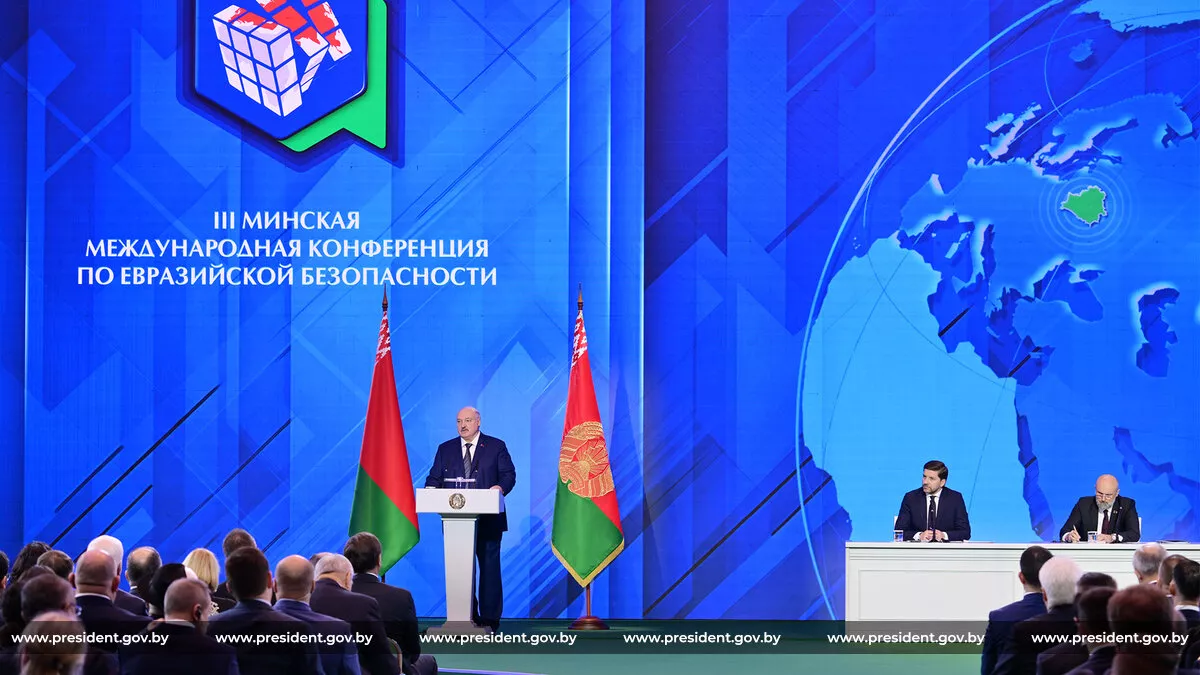
The Eurasian Security Conference was opened by the President of Belarus, Alexander Lukashenko, who stated: “The so-called civilised world has reached its decline — that’s for certain. The actions not only of our neighbours but of Europe as a whole and other powers… And let us have no illusions about the United States — it is just as much an element of hybrid warfare as the recent border closure by Warsaw…”
Following Poland’s recent decision to close its border, both sides — Belarus and Poland — suffered losses. However, Poland’s losses were significantly greater, as it had been receiving 65–70% of the value of all Chinese transit.
“This is the 21st century: closed skies, barbed wire, and total rejection of dissent. And this is only the beginning. They fear, like fire, that an alternative point of view might be voiced here. They are afraid of all of us — of you, of your analysis, of your understanding of the situation, of your ability to convey it to people, of your voice,” the Belarusian president emphasised.
Alexander Lukashenko also highlighted the rare examples of peace-building seen today, naming as the first and almost the only one the settlement of the conflict between Azerbaijan and Armenia. However, he noted that the world is currently witnessing the highest number of armed conflicts since the Second World War.
“Western politicians still believe they can use force to make everyone follow their interests. And those who refuse to bend — they isolate,” the Belarusian leader stated.
According to him, people long for a different world — one without conflicts and tolerant of differences. And the countries of the Eurasian space possess everything necessary to promote mutual development — a vast market, abundant resources, and capable people.
At the same time, Lukashenko offered some criticism. In his view, the countries of the Eurasian space are still doing too little to reach a new level of cooperation and integration. Pointing to what he described as “banditry and theft” on the part of the West, the Belarusian president called for an adequate response. Among the possible measures, he mentioned the creation of a currency alternative to the dollar.
“We must not look at each other through a gunsight…”
Lukashenko expressed concern that the current U.S. stance on a peaceful settlement of the crisis in Ukraine might be a “staged performance.” He once again called for an end to the war between Russia and Ukraine: “There can be no playing games here. Because, as Trump himself says, too many people are dying.”
Noting the collective West’s pressure on the countries of the Global South, as well as the military threat to Venezuela, Lukashenko urged unity: “So let’s unite. Let’s create some kind of alternative — starting with financial settlements and ending with a clear demonstration of our capabilities. And we do have such capabilities. But we are not acting; we keep waiting until we are dealt with one by one…”
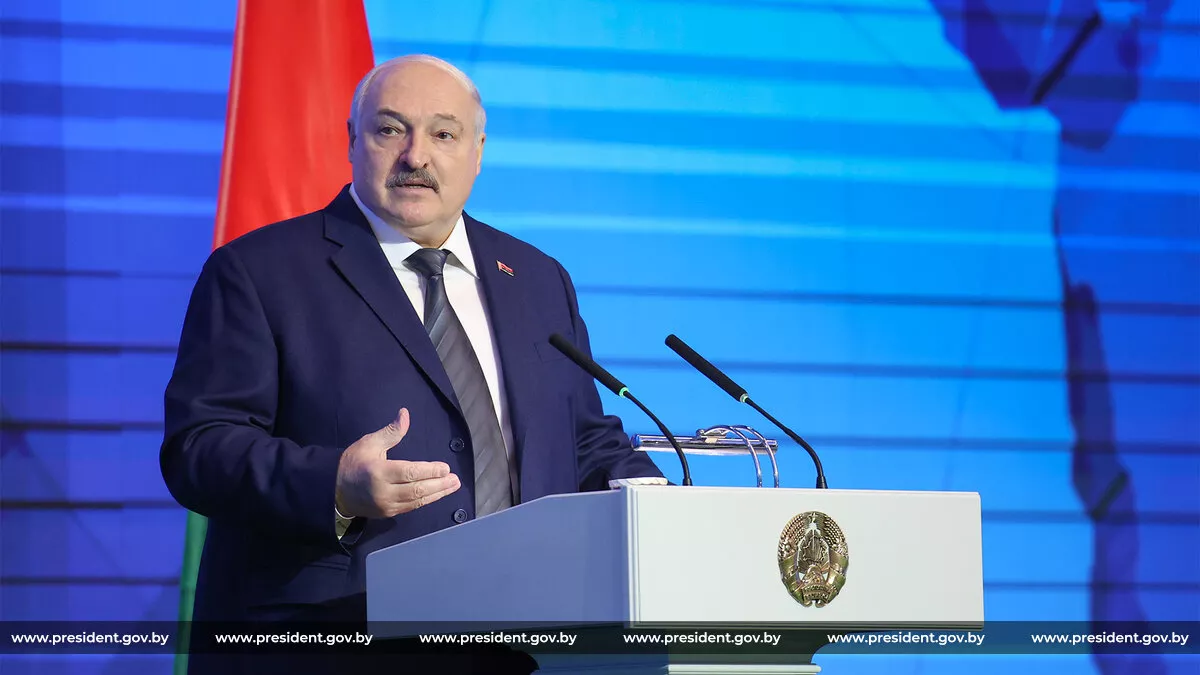
The president drew attention to the unprecedented military build-up in neighbouring countries — particularly in Poland, where military spending has already reached 5% of GDP, and in Lithuania.
“We prepare for war every day — precisely so that it does not happen,” the Belarusian leader said.
Earlier, NATO member states ignored Belarus’s peace-oriented proposal to ban the deployment of medium-range missiles. Now, however, they are declaring their intention to station this dangerous weaponry on their own territories. Therefore, the deployment of the Oreshnik medium-range missile system in Belarus, Lukashenko stressed, is a retaliatory measure. Yet, he added, if the West steps back from its policy of military escalation, “there will be no talk of Oreshnik.”
Speaking about migration issues, the Belarusian president noted that the West itself had bombed and destroyed many countries whose inhabitants now have a legitimate right to seek refuge. As an example of a humane approach to refugees, he cited Belarus.
Addressing Western leaders, Lukashenko declared: “We will not defend you with a noose around our necks. Sanctions are a noose around the neck of the Belarusian people.”
Belarus is not seeking confrontation. Lukashenko expressed support for a vision of a new multipolar world in which both the EU and the United States would have an important place — provided they adopt a “sober outlook” and abandon political theatrics.
He proposed banning sanctions on food and medicines, prohibiting actions targeting critical infrastructure, and introducing measures for international oversight of artificial intelligence.
“Dear friends, we need dialogue! We must not look at each other through the sights of a rifle,” said Alexander Lukashenko. In conclusion, he urged the participants of the conference not to turn it into empty talk but to move towards concrete action.
At the centre of a multipolar world
Following Lukashenko’s address, Hungarian Foreign Minister Péter Szijjártó took the floor, beginning his remarks by saying that he would be “criticised extremely heavily” for participating in the conference.
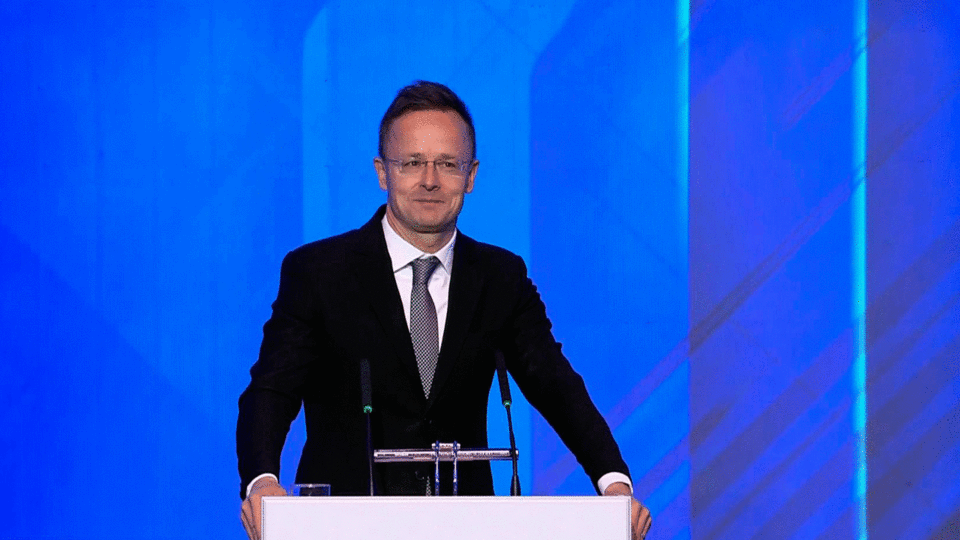
“But the state of global security is so dire that I simply had to be here today,” said the Hungarian foreign minister. In his view, the current global situation is the worst since the Second World War. Consensus is unattainable, while the West continues to rely on isolation and military solutions.
“But military ‘solutions’ are never true solutions,” Szijjártó emphasised. “Our response is entirely different. We believe that the current situation should serve as an impetus for more active dialogue. Dialogue must be closer than ever before. And we must have hope and negotiate in the name of peace.”
The minister noted that the Western political community operates under the belief that everything must be excessively politicised and ideologised — a mindset he described as extremely dangerous.
According to him, Hungary — given its historical experience — stands against dividing the world into blocs and supports mutually beneficial cooperation. Not long ago, the EU was a strong international player with a growing economy, as its policies were guided by common sense. Eurasian economic cooperation stretching from Vladivostok to Lisbon, based on cheap Russian resources and Western technologies, was once on the agenda — but the EU’s customs agreement with the United States put an end to that vision.
The EU has also inflicted considerable damage on itself by isolating from the “continent of the future” — Africa. Meanwhile, Hungary advocates cooperation with China and supports the idea of restoring the EU’s strength. Budapest also recognises President Trump’s peace efforts as “successful.”
Russian Foreign Minister Sergey Lavrov described Eurasia as the centre of the emerging multipolar world and stressed that it is the new global majority that now sets the tone in international politics. However, NATO countries refuse to acknowledge this new reality and continue to disregard the principle of indivisible security, openly preparing for a new major war in Europe.
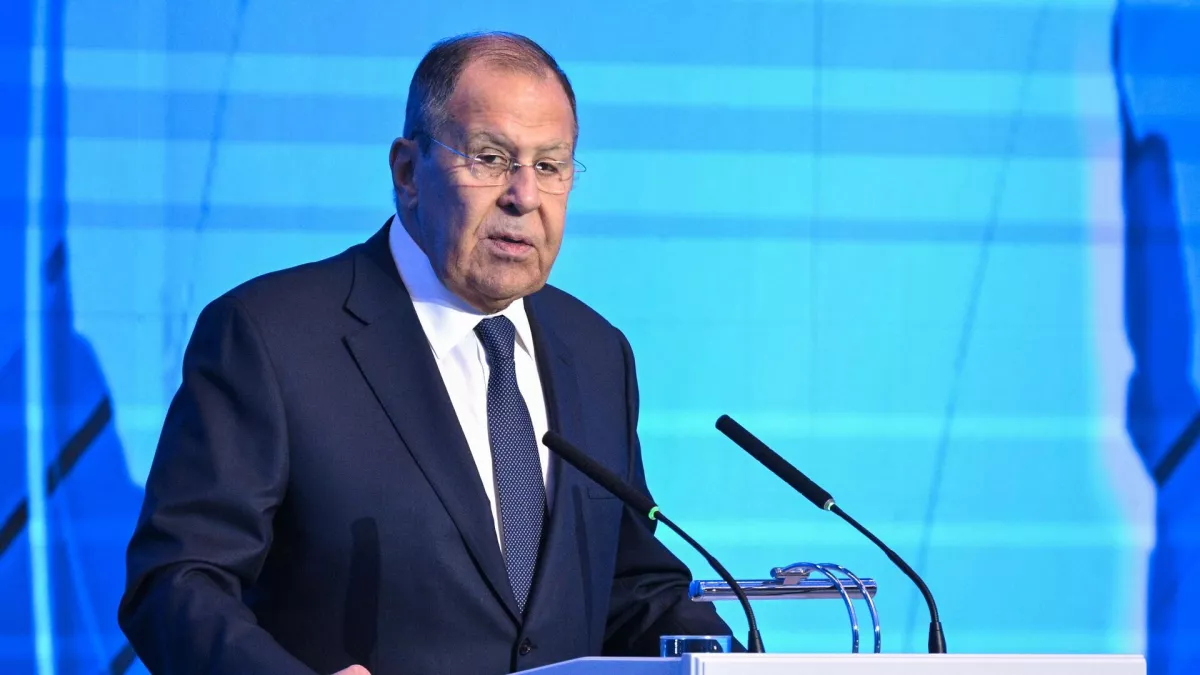
“But we still hope that President Trump remains genuinely committed to resolving the Ukrainian crisis,” Lavrov noted.
He also pointed out that the North Atlantic Alliance has now declared the Indo-Pacific region part of its “security zone” — naturally, to counter China and other nations — and is now turning its attention to the South Caucasus and Central Asia. The Russian foreign minister stressed that today’s realities demand abandoning the bloc mentality of the Cold War era.
According to Sun Linjiang, the Special Representative of China for Eurasian Affairs, the world has entered an era of new upheavals and transformations.
“China will continue to support all parties in addressing the root causes of crises through dialogue and consultations, and in building a balanced and sustainable security architecture… Figuratively speaking, the system of global governance today is like rowing against the current,” he stated.
Sergey Glazyev, State Secretary of the Union State of Russia and Belarus, noted that the centre of the world economy has shifted to the Global South. Therefore, he argued, the West — losing its hegemony — is waging a global hybrid war. To stop the arms race, Glazyev called for rejecting the use of NATO currencies “at least within our Asian and Eurasian economies.”
He also proposed the creation of a Eurasian ethical and values-based union and an information community, as well as the signing of a regional convention on combating cyberterrorism and espionage.
Speakers at the plenary session of the conference included North Korean Foreign Minister Choe Son Hui; CSTO Secretary General Imangali Tasmagambetov; Union Minister for Foreign Affairs of Myanmar Than Shwe; Indian Deputy Foreign Minister Sibi George; SCO Secretary General Nurlan Yermekbayev; CICA Secretary General Kairat Sarybay; Iranian Deputy Foreign Minister Saeed Khatibzadeh; Tajik Deputy Foreign Minister Farrukh Sharifzoda; CIS Deputy Secretary General Nurlan Seytimov; leader of the Union of Independent Social Democrats of Republika Srpska Milorad Dodik; and Sanjar Valiev, Director of the Centre for Foreign Policy Studies at Uzbekistan’s Ministry of Foreign Affairs.
In turn, Italian expert Matteo Peggio stated that the current leadership of Europe often behaves recklessly — a tendency that poses real danger. He stressed that the peoples of Europe must unite with the peoples of Eurasia “to replace the current leadership and build a fairer and freer world order.”
Former Spanish senator Luis Manuel Fraga added: “There is a new problem in the EU — a new Iron Curtain in Europe.”
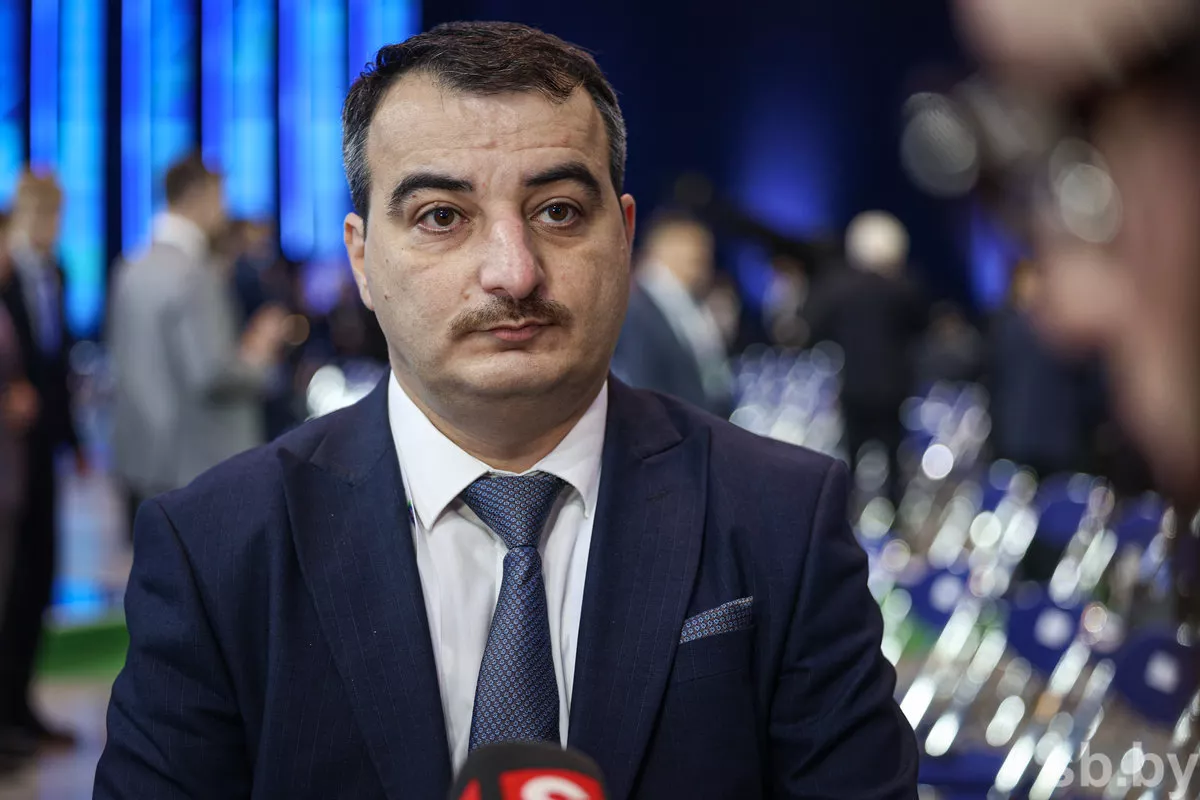
Ilyas Huseynov, head of the sector at the Azerbaijan Centre for Social Research, noted: “The Minsk platform brings efforts together by inviting very skilled and talented experts from different countries and fields. It is important to take into account national interests, the specific characteristics, and the mentality of different regions and peoples.
In this context, the Charter of Diversity and Multipolarity of the 21st century, being developed on the sidelines of the conference, is particularly important. It could become a unique framework for ensuring security. Moreover, it is significant that Belarus is not pursuing its own political interests but seeks to unite efforts, consider the positions of different countries, and present them in the best light.”
Thus, the Minsk conference once again reflected a key international trend today — the new centre of the global economy is rapidly forming in the Global South.
To maintain their slipping dominance, yesterday’s hegemons are trying by all means — through sanctions, information wars, coups, fomenting local conflicts, and provoking a new major war — to resist the objective changes taking place in the world.
At the same time, Western countries are experiencing a crisis of neoliberal capitalism, suffering from internal instability and moral decline.
Against this backdrop, the countries of Eurasia are offering an alternative path — one based on ethical values and the interests of the majority. Instead of neo-imperial expansion and coercive domination, they advocate a just world order, equal dialogue, universal and indivisible security, non-aligned thinking, and a commitment to cooperation and shared development.
As the 3rd Minsk International Conference on Eurasian Security demonstrated, an increasing number of countries and peoples are willing to follow this path, which is common to all of humanity. In this context, Belarus — situated on a geopolitical fault line — is doing everything possible to maintain peace and stability across both our continents.








